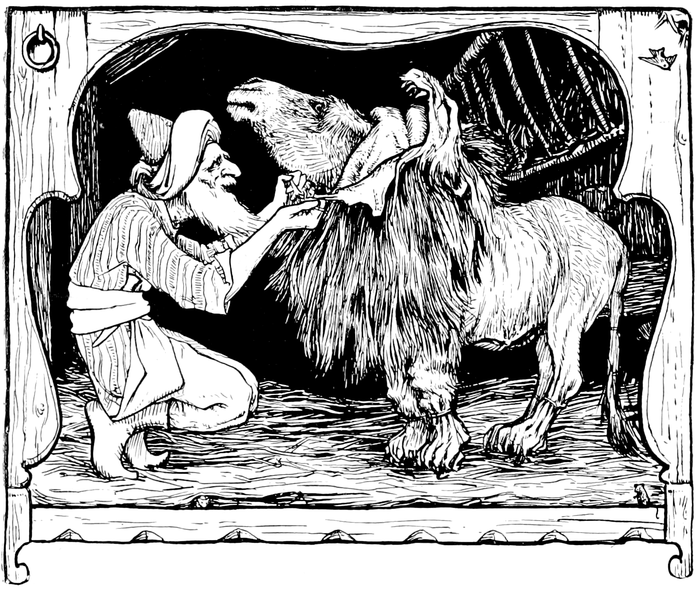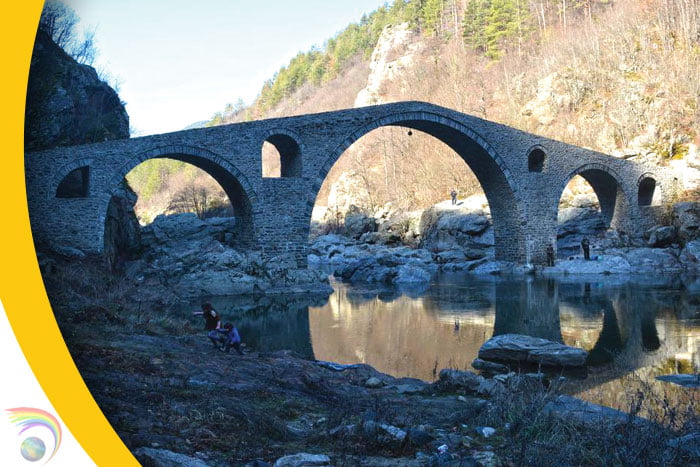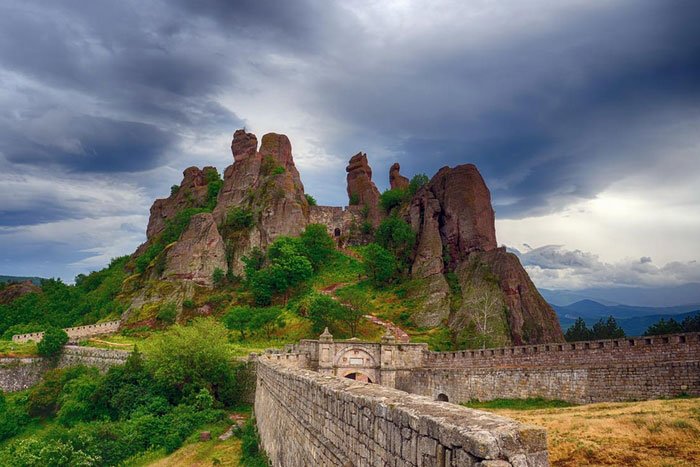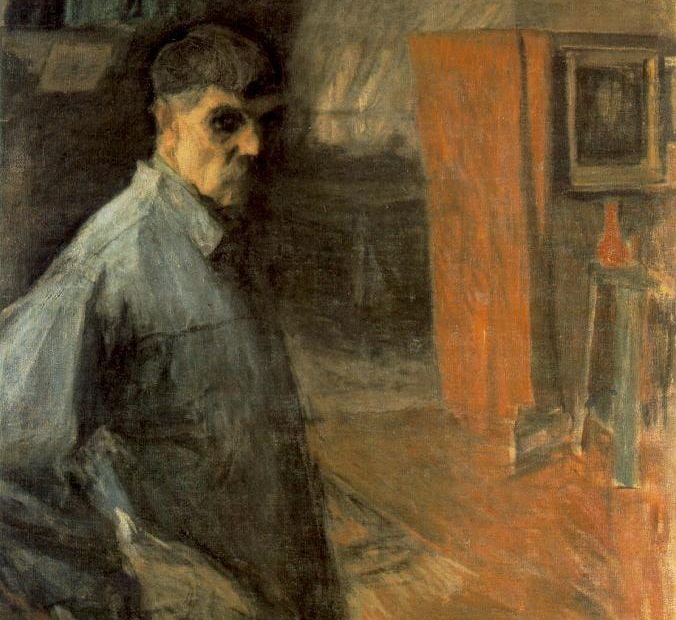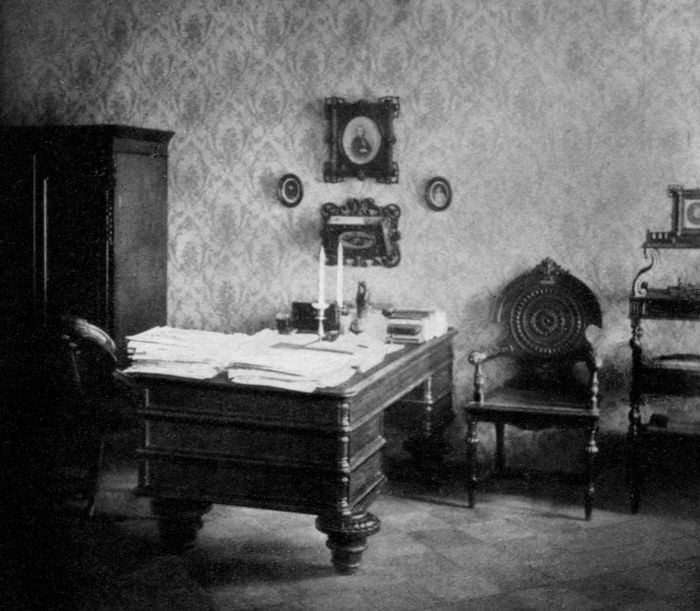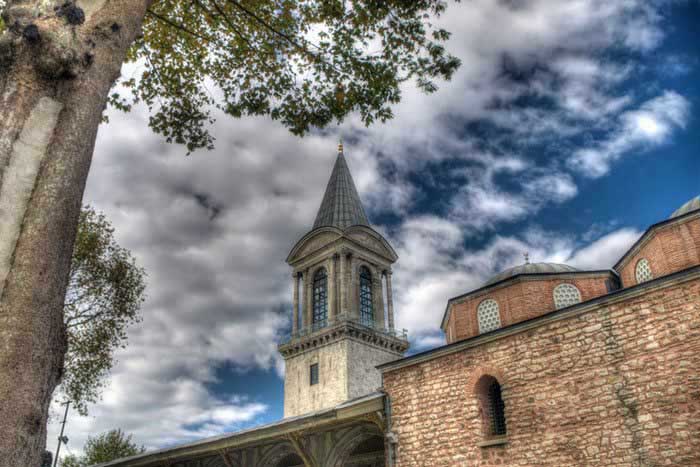Apollonius of Rhodes (3rd Century B.c.)
Although he was a late writer in the epic form, Apollonius treated ancient mythical material, but from the standpoint of a scholar and a literary stylist. He left his native land, Rhodes, and settled m Alexandria, then the centre of the cultured world. The tale of Phineus is not new, but the details which embellish it, and the verbal pyrotechnics which he lavished upon it, are highly characteristic of the decadent period in which it was written.
The present translation is that of R. C. Seaton, in the Loeb edition, William Heinemann, London, 1912. There is no title to the story in the original.
Phineus And The Harpies
There Phineus, son of Agenor, had his home by the sea, Phineus, who above all men endured most bitter woes because of the gift of prophecy which Leto`s son had granted him aforetime. And he reverenced not a whit even Zeus himself, for he foretold unerringly to men his sacred will. Wherefore Zeus sent upon him a lingering old age, and took from his eyes the pleasant light, and suffered him not to have joy of the dainties untold that the dwellers-around ever brought to his house when they came to inquire the will of heaven. But on a sudden, swooping through the clouds, the Harpies, with their crooked beaks, incessantly snatched the food away from his mouth and hands, and at times not a morsel of food was left, at others but a little, in order that he might live and be tormented. And they poured forth over all a loathsome stench; and no one dared not merely to carry food to his mouth, but even to stand at a distance, so foully reeked the remnants of the meal.
But straightway when he heard the voice and the tramp of the band he knew that they were the men passing by, at whose coming Zeus`s oracle had declared to him that he should have joy of his food. And he rose from his couch, like a lifeless dream, bowed over his staff, and crept to the door on his withered feet, feeling the walls; and as he moved, his limbs trembled for weakness and age; and his parched skin was caked with dirt, and naught but the skin held his bones together. And he came forth from the hall and sat on the threshold of the courtyard; and a dark stupor covered him, and it seemed that the earth reeled round beneath his feet, and he lay in a strength less trance, speechless. But when they saw him they gathered round and marveled, and he at last drew labored breath from the depths of his chest and spoke among them with prophetic utterance:
Son of Leto
“Listen, bravest of all the Hellenes, if it be truly ye, whom by a king`s ruthless command Jason is leading on the ship Argo in quest of the fleece. It is ye truly. Even yet my soul by its divinations knows everything. Thanks I render to thee, King, son of Leto, plunged in bitter affliction though I be. I beseech you by Zeus, the god of suppliants, the sternest foe to sinful men, and for the sake of Phoebus and Hera herself under whose especial care ye have come hither, help me, save an ill-fated man from misery, and depart not uncaring, and leaving me thus as ye see. For not only has the Fury set her foot on my eyes and I drag on to the end a weary old age, but besides my other woes a woe hangs over me, the bitterest of all.
The Harpies, swooping down from some unseen den of destruction, ever snatch the food from my mouth, and I have no device to aid me. But it were easier, when I long for a meal, to escape my own thoughts than them, so swiftly do they fly through the air. But if haply they do leave me a morsel of food, it reeks of decay and the stench is unendurable, nor could any mortal bear to draw near, even for a moment, no, not if his heart were wrought of adamant. But necessity, bitter and insatiate, compels me to abide, and abiding to put food into my accursed belly. These pests, the oracle declares, the sons of Boreas shall restrain, and no strangers are they that shall ward them off” if indeed I am Phineus who was once renowned among men for wealth and the gift of prophecy, and if I am the son of my father Agenor; and when I ruled among the Thracians, by my bridal gifts I brought home their sister Cleopatra to be my wife.”
So spake Agenor`s son, and deep sorrow seized each of the heroes, and especially the two sons of Boreas. And brushing away a tear, they drew nigh, and Zetes spake as follows, taking in his own the hand of the grief-worn sire:
“Unhappy one, none other of men is more wretched than thou, me- thinks. Why upon thee is laid the burden of so many sorrows? Hast thou with baneful folly sinned against the gods through thy skill in prophecy? For this are they greatly wroth with thee? Yet our spirit is dismayed within us for all our desire to aid thee, if indeed the god has granted this privilege to us two. For plain to discern to men of earth are the reproofs of the immortals. And we will never check the Harpies when they come, for all our desire, until thou hast sworn that for this we shall not lose the favor of heaven.”
For the rest of the story you can visit link Phineus and the Harpies.
Read More about Guzman and my Lord Cardinal part 1
